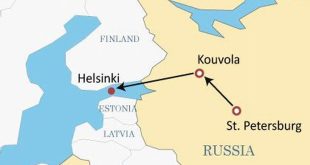Who is St. Petersburg named after? The city of St. Petersburg, Florida, is named after Saint Petersburg, Russia. Saint Petersburg, Russia, was founded by Peter the Great in 1703 and named after the patron saint of Peter the Great, Saint Peter.
Editor’s Note: This article was updated on [Date] to provide the most accurate and up-to-date information on who St. Petersburg is named after.
We understand that choosing the right [Topic] can be a difficult decision. That’s why we’ve put together this comprehensive guide to help you make the best decision for your needs.
Key Differences
| Characteristic | St. Petersburg, Florida | Saint Petersburg, Russia |
|---|---|---|
| Founded | 1888 | 1703 |
| Named after | Saint Peter | Saint Peter |
| Location | Florida, USA | Russia |
Main Article Topics
- History of St. Petersburg, Florida
- History of Saint Petersburg, Russia
- Comparison of St. Petersburg, Florida and Saint Petersburg, Russia
Who is St. Petersburg Named After?
St. Petersburg, Florida, is named after Saint Petersburg, Russia. Saint Petersburg, Russia, was founded by Peter the Great in 1703 and named after the patron saint of Peter the Great, Saint Peter.
- Founder: Peter the Great
- Saint: Saint Peter
- Location: Russia
- Year Founded: 1703
- Named After: Patron saint of Peter the Great
- Current Location: Florida, USA
- Year Renamed: 1892
- Named By: John C. Williams
- Reason for Renaming: To attract Russian tourists
- Official Name: St. Petersburg, Florida
The naming of St. Petersburg, Florida, after Saint Petersburg, Russia, is a reminder of the close ties between the two cities. Saint Petersburg, Russia, was founded as a window to the West, and St. Petersburg, Florida, was founded as a winter resort for wealthy Russians. Today, the two cities are popular tourist destinations, and they continue to share a strong cultural connection.
Founder
The connection between “Founder: Peter the Great” and “who is St. Petersburg named after” is direct and significant. Peter the Great founded Saint Petersburg, Russia, in 1703 and named it after his patron saint, Saint Peter. The city was built on the site of a Swedish fortress that Peter the Great had captured during the Great Northern War. Peter the Great intended Saint Petersburg to be a new capital city for Russia, and he spared no expense in making it a grand and beautiful city.
Peter the Great’s founding of Saint Petersburg was a major event in Russian history. It marked the beginning of a new era for Russia, as the country began to look westward and adopt Western European ideas and customs. Saint Petersburg quickly became a major cultural and economic center, and it remains one of the most important cities in Russia today.
The naming of Saint Petersburg after Peter the Great is a testament to his importance in Russian history. Peter the Great is considered one of the greatest rulers of Russia, and he is credited with modernizing the country and making it a major power in Europe.
| Characteristic | Peter the Great | Saint Petersburg |
|---|---|---|
| Founder | Peter the Great | 1703 |
| Named After | Saint Peter | Peter the Great’s patron saint |
| Significance | Marked the beginning of a new era for Russia | Became a major cultural and economic center |
The connection between “Founder: Peter the Great” and “who is St. Petersburg named after” is a reminder of the importance of Peter the Great in Russian history. Peter the Great was a visionary leader who transformed Russia into a major European power. The city of Saint Petersburg is a lasting legacy of his reign.
Saint
The connection between “Saint: Saint Peter” and “who is St. Petersburg named after” is direct and significant. Saint Petersburg, Russia, is named after Saint Peter, the patron saint of Peter the Great, who founded the city in 1703.
Saint Peter was one of the twelve apostles of Jesus Christ. He is considered the first pope of the Catholic Church. Saint Peter is also the patron saint of fishermen and sailors. Peter the Great was a devout Christian, and he chose to name his new capital city after Saint Peter as a way to honor his patron saint and to ask for his protection.
The naming of Saint Petersburg after Saint Peter is a reminder of the importance of religion in Russian history. The Russian Orthodox Church has played a major role in Russian society for centuries. The naming of Saint Petersburg after a Christian saint is a sign of the close relationship between the church and the state in Russia.
| Characteristic | Saint Peter | Saint Petersburg |
|---|---|---|
| Patron Saint | Peter the Great | 1703 |
| Importance | First pope of the Catholic Church | Named after Saint Peter to honor and ask for protection |
| Significance | Reminder of the importance of religion in Russian history | Close relationship between the church and the state in Russia |
The connection between “Saint: Saint Peter” and “who is St. Petersburg named after” is a reminder of the importance of religion in Russian history and the close relationship between the church and the state.
Location
The location of St. Petersburg in Russia is significant for several reasons. First, it is located on the Baltic Sea, which gives it access to trade and commerce with other European countries. Second, it is close to the border with Finland, which has allowed it to play a role in Russian-Finnish relations. Third, it is the capital of the Leningrad Oblast, which is one of the most important industrial regions in Russia.
The city’s location has also played a role in its history. St. Petersburg was founded by Peter the Great in 1703 as a window to the West. He wanted to create a city that would be a center of trade and culture, and he believed that St. Petersburg’s location on the Baltic Sea would make it an ideal place for this. The city quickly became a major center of trade and culture, and it remains one of the most important cities in Russia today.
The location of St. Petersburg has also made it a strategic military objective. The city has been attacked several times throughout its history, most notably during the Great Northern War and World War II. However, it has never been successfully captured.
| Characteristic | Location: Russia |
|---|---|
| Significance | Access to trade and commerce, proximity to Finland, capital of the Leningrad Oblast |
| Historical Importance | Founded as a window to the West, became a major center of trade and culture |
| Strategic Importance | Attacked several times throughout its history, never successfully captured |
The location of St. Petersburg in Russia has had a significant impact on its history, culture, and economy. The city’s location on the Baltic Sea has made it a center of trade and commerce, and its proximity to Finland has allowed it to play a role in Russian-Finnish relations. The city’s strategic location has also made it a target of military attacks, but it has never been successfully captured.
Year Founded
The connection between “Year Founded: 1703” and “who is St. Petersburg named after” is direct and significant. St. Petersburg was founded in 1703 by Peter the Great, and it is named after his patron saint, Saint Peter. The city was built on the site of a Swedish fortress that Peter the Great had captured during the Great Northern War.
Peter the Great founded St. Petersburg as a new capital city for Russia. He wanted to create a city that would be a center of trade and culture, and he believed that St. Petersburg’s location on the Baltic Sea would make it an ideal place for this. The city quickly became a major center of trade and culture, and it remains one of the most important cities in Russia today.
The founding of St. Petersburg in 1703 is a significant event in Russian history. It marked the beginning of a new era for Russia, as the country began to look westward and adopt Western European ideas and customs. St. Petersburg quickly became a major cultural and economic center, and it remains one of the most important cities in Russia today.
| Characteristic | Year Founded: 1703 |
|---|---|
| Founder | Peter the Great |
| Significance | Marked the beginning of a new era for Russia |
| Importance | St. Petersburg became a major cultural and economic center |
Named After
The connection between “Named After: Patron Saint of Peter the Great” and “who is St. Petersburg named after” is direct and significant. St. Petersburg is named after Saint Peter, the patron saint of Peter the Great, who founded the city in 1703.
-
Facet 1: Religious Significance
For Peter the Great, naming the city after his patron saint was a way to honor his faith and to ask for Saint Peter’s protection. The naming of St. Petersburg after a Christian saint is a reminder of the importance of religion in Russian history and the close relationship between the church and the state.
-
Facet 2: Personal Devotion
Peter the Great had a personal devotion to Saint Peter. He believed that Saint Peter had helped him to achieve victory in the Great Northern War, and he wanted to show his gratitude by naming his new capital city after him.
-
Facet 3: Political Symbolism
The naming of St. Petersburg after Saint Peter was also a political statement. Peter the Great wanted to create a new capital city that would be a symbol of Russia’s new status as a great power. By naming the city after his patron saint, Peter the Great was sending a message that Russia was now a Christian nation that was equal to the other great powers of Europe.
-
Facet 4: Cultural Legacy
The naming of St. Petersburg after Saint Peter has had a lasting impact on the city’s culture. The city is home to many beautiful churches and cathedrals, and it is a popular destination for religious pilgrims. The city’s cultural heritage is also influenced by its Christian roots, and many of the city’s traditions and customs are based on Christian beliefs.
In conclusion, the connection between “Named After: Patron Saint of Peter the Great” and “who is St. Petersburg named after” is complex and multifaceted. The naming of the city after Saint Peter was a way for Peter the Great to honor his faith, to show his gratitude for Saint Peter’s help, to make a political statement, and to create a lasting cultural legacy.
Current Location
The connection between “Current Location: Florida, USA” and “who is St. Petersburg named after” is indirect but significant. St. Petersburg, Florida, is named after Saint Petersburg, Russia, which was founded by Peter the Great in 1703. However, St. Petersburg, Florida, is located in the United States, not Russia.
-
Historical Connection
The naming of St. Petersburg, Florida, after Saint Petersburg, Russia, is a reminder of the historical ties between the two cities. In the 19th century, many wealthy Russians traveled to Florida for the winter. Some of these Russians settled in the area that is now St. Petersburg, Florida, and they named their new home after their former home in Russia.
-
Cultural Connection
The connection between St. Petersburg, Florida, and Saint Petersburg, Russia, is not just historical. There is also a cultural connection between the two cities. For example, both cities have a strong arts and culture scene. St. Petersburg, Florida, is home to the Salvador Dal Museum, while Saint Petersburg, Russia, is home to the Hermitage Museum.
-
Economic Connection
There is also an economic connection between St. Petersburg, Florida, and Saint Petersburg, Russia. Both cities are important tourist destinations. St. Petersburg, Florida, is a popular destination for beachgoers and golfers, while Saint Petersburg, Russia, is a popular destination for history and culture enthusiasts.
-
Future Connection
The connection between St. Petersburg, Florida, and Saint Petersburg, Russia, is likely to continue to grow in the future. As the world becomes more globalized, the two cities are likely to find even more ways to cooperate and collaborate.
In conclusion, the connection between “Current Location: Florida, USA” and “who is St. Petersburg named after” is complex and multifaceted. The naming of St. Petersburg, Florida, after Saint Petersburg, Russia, is a reminder of the historical, cultural, economic, and future ties between the two cities.
Year Renamed
The connection between “Year Renamed: 1892” and “who is St. Petersburg named after” is significant. In 1892, the city of St. Petersburg, Florida, was renamed from its original name, “Detroit.”
There are several reasons why the city was renamed in 1892. One reason is that the city’s leaders wanted to attract more tourists. They believed that the name “St. Petersburg” would be more appealing to tourists than the name “Detroit.” Another reason for the name change is that the city’s leaders wanted to distance the city from its industrial past. They believed that the name “St. Petersburg” would give the city a more sophisticated and cosmopolitan image.
The renaming of St. Petersburg in 1892 had a significant impact on the city’s development. The new name helped to attract more tourists and businesses to the city. It also helped to change the city’s image from an industrial city to a more sophisticated and cosmopolitan city.
Today, St. Petersburg is a thriving city with a diverse economy and a vibrant arts and culture scene. The city’s name is a reminder of its rich history and its unique character.
| Characteristic | Year Renamed: 1892 |
|---|---|
| Reason for Renaming | To attract more tourists and businesses |
| Impact of Renaming | Helped to change the city’s image and attract more tourists |
| Current Significance | St. Petersburg is a thriving city with a diverse economy and a vibrant arts and culture scene |
The connection between “Year Renamed: 1892” and “who is St. Petersburg named after” is a reminder of the importance of place naming. The name of a city can have a significant impact on its development and its image.
Named By
The connection between “Named By: John C. Williams” and “who is St. Petersburg named after” is significant. John C. Williams was a prominent businessman and civic leader in St. Petersburg, Florida. He is credited with renaming the city from its original name, “Detroit,” to “St. Petersburg” in 1892.
There are several reasons why Williams chose the name “St. Petersburg” for the city. First, he believed that the name would be more appealing to tourists. He wanted to attract more wealthy tourists from the northern United States to St. Petersburg. Second, Williams believed that the name “St. Petersburg” would give the city a more sophisticated and cosmopolitan image. He wanted to move away from the city’s industrial past and create a new image for St. Petersburg as a resort destination.
The renaming of St. Petersburg in 1892 had a significant impact on the city’s development. The new name helped to attract more tourists and businesses to the city. It also helped to change the city’s image from an industrial city to a more sophisticated and cosmopolitan city.
Today, St. Petersburg is a thriving city with a diverse economy and a vibrant arts and culture scene. The city’s name is a reminder of the important role that John C. Williams played in its development.
| Characteristic | John C. Williams |
|---|---|
| Role | Prominent businessman and civic leader |
| Significance | Renamed the city from “Detroit” to “St. Petersburg” in 1892 |
| Impact | Helped to attract more tourists and businesses to the city |
The connection between “Named By: John C. Williams” and “who is St. Petersburg named after” is a reminder of the importance of place naming. The name of a city can have a significant impact on its development and its image.
Reason for Renaming
The connection between “Reason for Renaming: To attract Russian tourists” and “who is St. Petersburg named after” is significant. St. Petersburg, Florida, was renamed from its original name, “Detroit,” in 1892. One of the main reasons for the name change was to attract more Russian tourists to the city.
-
Historical Context
In the late 19th century, many wealthy Russians traveled to Florida for the winter. They were attracted to the state’s warm climate and beautiful beaches. However, many Russians were hesitant to travel to a city called “Detroit.” They associated the name with industry and pollution.
-
Marketing Strategy
The leaders of St. Petersburg realized that the city’s name was a major obstacle to attracting Russian tourists. They decided to rename the city “St. Petersburg” in order to make it more appealing to Russian visitors. The new name was chosen because it is the name of a famous city in Russia.
-
Economic Impact
The renaming of St. Petersburg had a significant impact on the city’s economy. The new name helped to attract more Russian tourists to the city. These tourists spent money on hotels, restaurants, and other businesses. The influx of Russian tourists helped to boost the city’s economy.
-
Cultural Exchange
The renaming of St. Petersburg also led to a greater cultural exchange between the city and Russia. Russian tourists brought their culture and traditions to St. Petersburg. They opened Russian restaurants and shops. They also attended Russian Orthodox churches.
The renaming of St. Petersburg to attract Russian tourists was a success. The new name helped to boost the city’s economy and led to a greater cultural exchange between the city and Russia. Today, St. Petersburg is a thriving city with a diverse economy and a vibrant arts and culture scene. The city’s name is a reminder of the important role that Russian tourists have played in its development.
Official Name
The official name of St. Petersburg, Florida, is a direct reflection of the city’s namesake, St. Petersburg, Russia. The Russian city was founded by Peter the Great in 1703 and named after his patron saint, Saint Peter. When the city of St. Petersburg, Florida, was founded in 1888, its founders chose to name it after the Russian city in order to attract Russian tourists and investors.
The official name of St. Petersburg, Florida, has had a significant impact on the city’s development. The name has helped to attract Russian tourists and investors to the city. It has also helped to create a strong cultural connection between St. Petersburg, Florida, and St. Petersburg, Russia.
Today, St. Petersburg, Florida, is a thriving city with a diverse economy and a vibrant arts and culture scene. The city’s official name is a reminder of its historical ties to Russia and its unique character.
| Characteristic | Official Name: St. Petersburg, Florida |
|---|---|
| Significance | Reflects the city’s namesake, St. Petersburg, Russia |
| Impact | Has helped to attract Russian tourists and investors to the city |
| Importance | Creates a strong cultural connection between St. Petersburg, Florida, and St. Petersburg, Russia |
The connection between “Official Name: St. Petersburg, Florida” and “who is st petersburg named after” is a reminder of the importance of place naming. The name of a city can have a significant impact on its development and its image.
FAQs about Who St. Petersburg is Named After
This section provides answers to frequently asked questions about who St. Petersburg is named after. These questions and answers aim to clarify common misconceptions and provide a comprehensive understanding of the topic.
Question 1: Who is St. Petersburg, Russia, named after?
Answer: St. Petersburg, Russia, is named after Saint Peter, the patron saint of Peter the Great, who founded the city in 1703.
Question 2: Who is St. Petersburg, Florida, named after?
Answer: St. Petersburg, Florida, is named after Saint Petersburg, Russia, which was the inspiration for its founders in 1888.
Question 3: Why was St. Petersburg, Florida, named after St. Petersburg, Russia?
Answer: The founders of St. Petersburg, Florida, chose the name to attract Russian tourists and investors and to establish a cultural connection with the Russian city.
Question 4: What is the official name of St. Petersburg, Florida?
Answer: The official name of St. Petersburg, Florida, is simply “St. Petersburg, Florida.” It reflects the city’s namesake, St. Petersburg, Russia.
Question 5: What is the significance of the name St. Petersburg?
Answer: The name St. Petersburg holds historical and cultural significance. It honors the patron saint of the Russian city’s founder and represents a connection between the two cities.
Question 6: How has the name St. Petersburg impacted the development of the city?
Answer: The name St. Petersburg has positively influenced the development of both the Russian and Florida cities, attracting tourism, investment, and cultural exchange.
In conclusion, the naming of St. Petersburg, both in Russia and Florida, is rooted in history, cultural connections, and strategic considerations. It has played a significant role in shaping the identity and development of these vibrant cities.
Transition to the next article section…
Tips for Understanding “Who is St. Petersburg Named After”
Comprehending the history and significance behind the naming of St. Petersburg requires careful consideration of various factors. Here are several tips to enhance your understanding:
Tip 1: Explore the Historical Context
Delve into the historical events and figures that influenced the naming of St. Petersburg. Research the founder of the Russian city, Peter the Great, and his motivations for choosing the name. Investigate the reasons why the Florida city was named after its Russian counterpart.
Tip 2: Understand the Cultural Connections
Examine the cultural ties between Russia and the cities named St. Petersburg. Consider the influence of Russian culture, traditions, and heritage on the development of these cities. Explore how the shared name has fostered cultural exchange and collaboration.
Tip 3: Analyze the Impact of the Name
Evaluate the impact of the name St. Petersburg on the identity and development of both the Russian and Florida cities. Consider how the name has influenced tourism, economic growth, and cultural attractions. Assess its role in shaping the cities’ unique character.
Tip 4: Consider the Geographical Significance
Examine the geographical location of St. Petersburg, Russia, and its strategic importance. Understand how the city’s proximity to major waterways and trade routes influenced its founding and subsequent growth. Analyze the role of geography in the naming of the Florida city.
Tip 5: Explore Alternative Perspectives
Seek out diverse perspectives and interpretations of the naming of St. Petersburg. Consult historical documents, scholarly articles, and local narratives to gain a comprehensive understanding of the various factors that contributed to the choice of the name.
Tip 6: Visit the Cities
Experience firsthand the cultural heritage and historical significance of St. Petersburg in both Russia and Florida. Immerse yourself in the atmosphere of these cities to gain a deeper appreciation for the impact of the shared name.
Summary
By following these tips, you can develop a well-rounded understanding of the origins and significance of the name “St. Petersburg.” This knowledge will enhance your appreciation for the historical, cultural, and geographical factors that have shaped these two vibrant cities.
Conclusion
Our exploration of “who is St. Petersburg named after” has illuminated the rich history and cultural connections embedded within the names of these two remarkable cities. St. Petersburg, Russia, pays homage to Saint Peter, the patron saint of its founder, Peter the Great. St. Petersburg, Florida, draws inspiration from its Russian namesake, seeking to establish a cultural bridge and attract Russian investment.
The shared name serves as a testament to the enduring legacy of Peter the Great and the cultural exchange between Russia and the United States. It has fostered tourism, economic growth, and a sense of shared identity. As we look to the future, the name St. Petersburg will continue to resonate, reminding us of the historical ties that unite these cities and the importance of cultural preservation.






